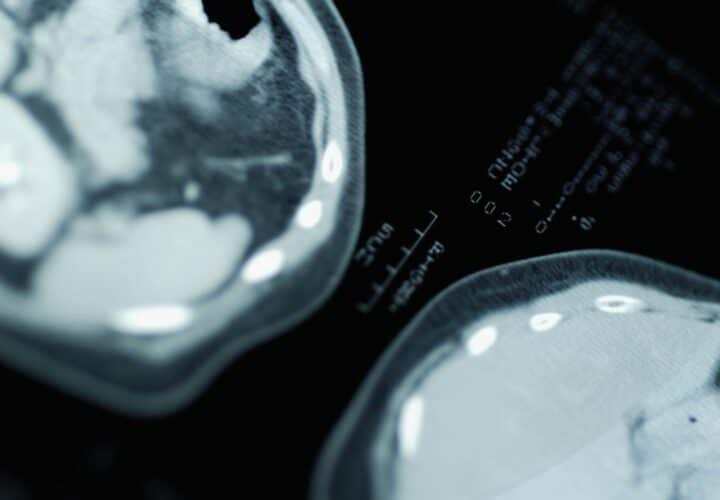Researchers suggest that brain glucose and ketones may be involved in ApoE’s connection with Alzheimer’s.
We know that people with a certain gene called ApoE4 have a higher likelihood of developing Alzheimer’s. In fact, people with two copies of the gene, one inherited from each parent, have up to 12 times the risk as someone with another variant of the gene. What we don’t know is why ApoE4 raises the risk. Now, a research team from University of Kansas has shed light on one of the reasons why people with ApoE4 are at a higher risk for Alzheimer’s.
Everyone carries two copies of an ApoE gene, which has a few different variants that we know of—ApoE2 and ApoE3 are the most common, with others being extremely rare. About 15 to 20 percent of the population carries at least one copy of ApoE4. The ApoE gene’s main job is carrying cholesterol around the body. But ApoE has many jobs in the body, and scientists have a lot of theories about where and why it might encourage Alzheimer’s disease. Some believe it may encourage beta-amyloid plaque development, while others say it affects how genes get translated in our bodies.
In this study, scientists looked at how glucose and ketone bodies are transformed into energy in the brain. Each of the main ApoE variants—2, 3 and 4—used a slightly different process. ApoE4 does not translate glucose into energy as well as the others, which aligns with findings that people whose brains have trouble breaking down sugar have more beta-amyloid plaques and tau tangles in their brains, two hallmarks of Alzheimer’s. What they found, though, was that brains of people with ApoE4 utilized ketone bodies, the brain’s secondary source of energy, to replace energy they weren’t getting from glucose.
In fact, according to lead study author Liqin Zhao, ApoE4 carriers are just as good as ApoE2 carriers at converting ketones into energy. ApoE2 is thought to have a slightly protective element against Alzheimer’s.
Typically, we rely on glucose (which we get from carbohydrates) as our energy source. But modifying diet to force your body to rely on ketones (made by breaking down fats) is rising in popularity, and many believe that it has a protective effect when it comes to Alzheimer’s.
In a small, 4-month study on people with mild Alzheimer’s, eating a ketogenic diet improved cognitive test scores in nine out of ten patients. When the patient went back to their normal diet, the improvement disappeared.
Study authors said the efficiency with which ApoE4 uses ketones may be due to the fact that the body is compensating for its inefficiency in processing glucose.
“We speculate that the robustness in ketone utilization in the ApoE4 brain may serve as a compensatory mechanism for the brain to attempt to counteract the disadvantage the brain experiences with glucose utilization,” said Zhao.
Does this mean that ApoE4 carriers would benefit more from a keto diet than other ApoE types? Not necessarily, said Zhao. Their study found that ApoE4 carriers are limited in how much energy they can glean from ketone bodies. But more research in this area needs to be done before it can be ruled out.
This study was published in the journal JNeurosci.



